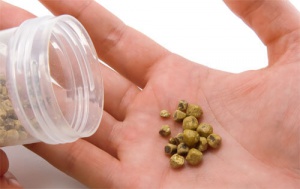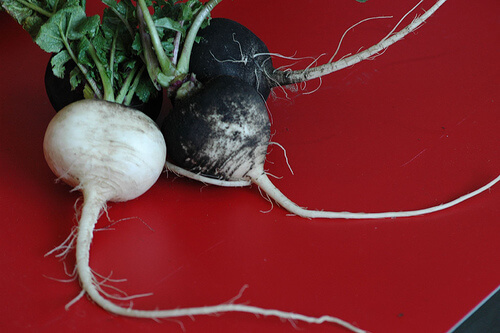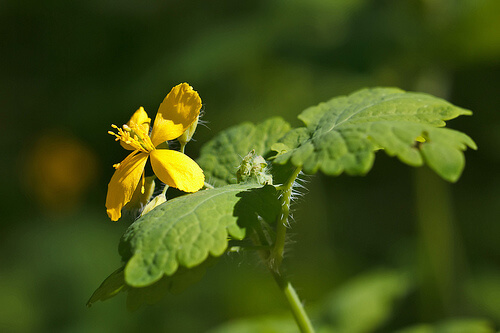How to Avoid Getting Gallstones

Gallstones are hard, pebble-like deposits that form inside the gallbladder due to excessive fat storage. They’re closely related to cholesterol levels. The people who suffer from them most tend to be blonde women over the age of 40 who are overweight and have had several children.
Here are some foods and supplements that will help you improve the gallbladder’s functioning and reduce and prevent gallstones, especially if you have genetic factors that can increase your risk to it.
Also Read: Signs and Symptoms of Gallbladder Function
Foods that increase your risk for gallstones
To take proper care of your liver and gallbladder, it’s essential to avoid the following food:
- Alcohol
- Fried food
- Red meat
- Ready-made dishes
- Dairy products
- White sugar
- Margarine
- Artificial sweeteners
The liver and gallbladder regenerate themselves in the early morning. Therefore, it’s better to eat a small dinner or eat early so that you aren’t still digesting dinner at night.
Read Also: Improve Your Liver Health With Boldo
We will also list some foods and supplements that will be very beneficial to you:
Red yeast rice
Red yeast rice comes from Asia and has important benefits for reducing triglycerides and cholesterol and for increasing good cholesterol. Since gallstones are highly related to cholesterol, eating this type of yeast for awhile is recommended.
You can consume this supplement in pill or powder form. Alternatively, you can have it as an extract.
Black radish
Black radish, a variant of the radish, is a wild plant of unknown origin. Nevertheless, it has has numerous medicinal properties, especially for the stomach and liver.
It contains fiber, amino acids, B vitamins, Vitamin C, and minerals. Among its components, the glucosinolates are especially important because they have properties for increasing bile production and helping to empty the gallbladder. Because of that, we recommend eating it when the liver is congested or when you’re suffering from poor digestion or other digestive problems. You can also eat it after heavy and excessive meals to help cleanse the body.
The part that is traditionally used is the root, which is very common in the kitchen, in salads, as a side, or to decorate certain dishes.
Greater celandine
This vegetable was used for the first time in the Mediterranean, greater celandine (chelidonium majus). It increases bile formation and helps maintain gallbladder health.
You can consume it in the form of an infusion or extract according to the indicated dosage.
Vitamin C
Vitamin C is a very beneficial supplement for keeping your immune system active. In this case, it helps stop the crystallization of gallstones.
Take it in pill form throughout the course of the day or also by eating foods that contain a lot of it daily.
Coffee enemas
This is an old remedy that many people practice. It consists of doing enemas with ecological, roasted coffee in powder form. Boil 1 liter of water with three tablespoons of coffee, 5 minutes on high and 15 minutes on low. Filter it until there are no grounds left. Once it is lukewarm, use a half liter to do the enemas, laying on your right side and try to hold it for 10 or 15 minutes. This is a very potent remedy and can even help people that have had their gallbladders removed.
Lemon and olive oil
There is an extremely simple remedy that will help cleanse and invigorate your gallbladder every morning. You just take a tablespoon of natural lemon juice and a tablespoon of cold olive oil every morning before eating. Afterwards, wait for a half hour, drink one or two glasses of warm water, and after a little bit you can have breakfast.
All cited sources were thoroughly reviewed by our team to ensure their quality, reliability, currency, and validity. The bibliography of this article was considered reliable and of academic or scientific accuracy.
- Theise, N. (2015). Hígado Y Vesícula Biliar. In Robbins y Cotran Patología Estructural y Funcional.
- Biblioteca Nacional de Medicina de EE.UU. Enfermedades de la vesícula biliar. https://medlineplus.gov/spanish/gallbladderdiseases.html
- Atenodoro R. Ruiz, Jr. (2017). Vesícula biliar y vías biliares. https://www.merckmanuals.com/es-us/hogar/trastornos-gastrointestinales/biolog%C3%ADa-del-aparato-digestivo/ves%C3%ADcula-biliar-y-v%C3%ADas-biliares
- MedlinePlus. Colelitiasis. https://medlineplus.gov/spanish/ency/esp_imagepages/17039.htm
- Journal of Health, Population and Nutrition. (2015). Dietary Patterns and Risk of Gallbladder Disease: A Hospital-based Case-Control Study in Adult Women. https://www.ncbi.nlm.nih.gov/pmc/articles/PMC4438647/
PCRM’S Nutrition Guide for Clinicians. Cholelithiasis. https://nutritionguide.pcrm.org/nutritionguide/view/Nutrition_Guide_for_Clinicians/1342013/all/Cholelithiasis - WebMD. Red Yeast Rice. https://www.webmd.com/cholesterol-management/red-yeast-rice#1
- Altern Med Rev. 2009 Sep;14(3):258-67. Nutritional approaches to prevention and treatment of gallstones. https://www.ncbi.nlm.nih.gov/pubmed/19803550
This text is provided for informational purposes only and does not replace consultation with a professional. If in doubt, consult your specialist.










